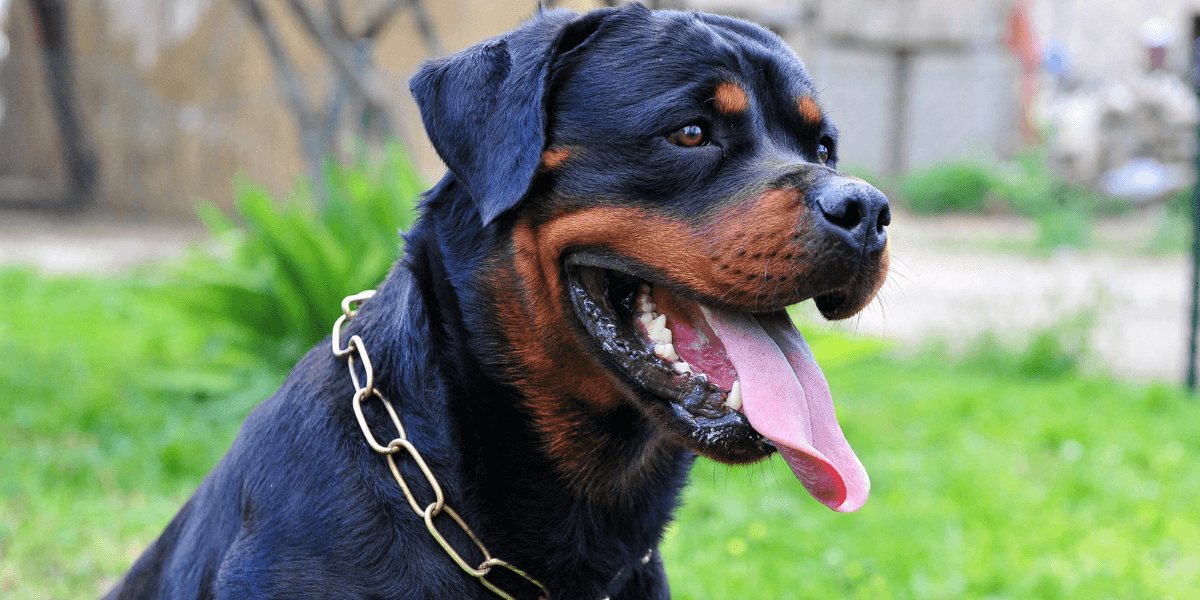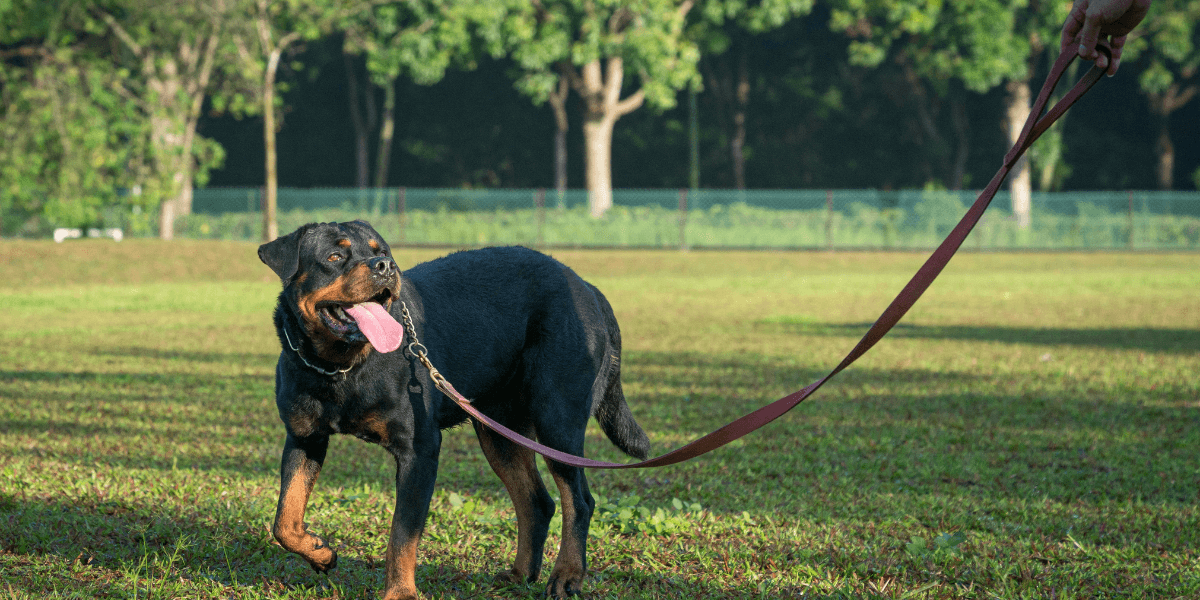Introduction
Discover the essential Rottweiler Training Basics to ensure a well-behaved
- Ready to train your Rottweiler? Start with these essential basics
- Learn the key steps to raising a well-behaved Rottweiler
- Master the basics of Rottweiler training with our easy guide
- Essential tips for training a well-behaved Rottweiler
- Transform your Rottweiler into a polite and obedient companion with our training tips
- Ensure your Rottweiler's training success with these foundational techniques
- Discover how to train your Rottweiler for excellent behavior
1. Understanding the Rottweiler Temperament

Their strong-willed nature can be mistaken for stubbornness. Here’s what to know:
- Confidence and Independence: Rottweilers need patient, consistent training due to their independence
- High Energy Levels: They require plenty of physical and mental stimulation to stay well-behaved
- Affectionate Nature: Despite their tough exterior, Rottweilers are affectionate with family
- Strong Work Ethic: They thrive on having a job or purpose, which keeps them engaged
- Early Socialization: Essential for balancing their protective instincts with friendly behavior
- Alertness: Making them excellent watchdogs but requiring proper training to manage their vigilance
- Protectiveness: Rottweilers are natural protectors. Socialization is key for friendliness and adjustment
- Loyalty: Deeply loyal to their family, they form strong bonds and will protect their loved ones
- Intelligence: Highly intelligent, they excel in training but may become bored with repetitive tasks
2. The Importance of Early Socialization

Expose your puppy to various settings:
- Introduce them: Let your pet in diverse places, people, and pets to boost confidence and adaptability
- Use positive reinforcement: reward treats and praise for good interactions
- Be consistent: ensure regular, varied socialization to prevent fearfulness or aggression
- Professional Classes: Enroll in puppy classes for structured, supervised socialization
- Gradual Exposure: Start with less stimulating environments and gradually introduce more complex settings.
- Controlled Encounters: Manage interactions with other animals and people to ensure positive experiences.
- Variety of Experiences: Include car rides, different surfaces, and varied environments to build adaptability.
- Positive Associations: Create positive experiences with new stimuli to build confidence and reduce anxiety.
- Ongoing Socialization: Keep socializing your Rottweiler to maintain good behavior and adaptability
3. Basic Obedience Training

Start with basic commands and gradually introduce more complex ones
- Essential Commands: Focus on commands like “sit,” “stay,” “come,” and “down”
- Positive Reinforcement: Reward your dog with treats for correct responses to commands
- Short Training Sessions: Keep training sessions short and frequent to keep your dog’s attention
- Consistency: Use the same words and gestures for each command to avoid confusion
- Patience: Be patient and persistent, especially with stubborn behaviors
4. Managing High Energy Levels

Rottweilers require regular exercise and mental stimulation to stay healthy:
- Daily Exercise: Give your Rottweiler 30-60 minutes of exercise daily with walks, runs, or play
- Structured Activities: Engage in agility or obedience training for focused energy use
- Social Interaction: Regular playdates with other dogs can help expend energy
- Interactive Toys: Use toys that require problem-solving to provide mental stimulation
- Training Sessions: Incorporate short, intensive training sessions to channel energy positively
- Safe Play Areas: Use secure, enclosed areas for off-leash play to ensure safety during exercise
- Mental Stimulation: Use puzzle toys, training games, and activities to keep their mind sharp
- Avoid Overexercise: Ensure not to overexert your Rottweiler, especially in hot weather
Check out our comprehensive guide on Rottweiler Nutrition to ensure theit dietary needs.
5. Addressing Behavioral Issues

Some common issues and solutions include:
- Barking: Use the “quiet” command and avoid rewarding excessive barking
- Chewing: Offer chew toys and redirect attention from inappropriate items
- Leash Pulling: Train with positive reinforcement and consistent commands
- Separation Anxiety: Gradually increase alone time and provide comforting items
- Jumping: Reward calm greetings with all paws on the ground to discourage jumping
- Digging: Provide a designated digging area or redirect to acceptable activities
- Resource Guarding: Teach “leave it” and “drop it” commands and practice sharing
6. Using Positive Reinforcement Techniques

It helps build a strong bond and encourages desired behaviors:
- Rewards: Use treats, praise, and play immediately to reinforce good behavior
- Timing: Reward immediately to connect the behavior with the reward
- Patience: Stay patient and persistent for long-term success
- Variety: Use different rewards to keep your dog engaged and motivated
- Consistency: Be consistent with rewards and commands to strengthen learning
- Avoid Negative Reinforcement: Reward positive behavior instead of punishing bad actions
7. Seeking Professional Help

For persistent training challenges, seek help from a professional dog trainer:
- Certified Trainers: Choose trainers who use positive reinforcement techniques
- Training Classes: Enroll in group classes for extra socialization opportunities
- Behavioral Consultations: A behaviorist can provide tailored advice for specific issues
- Online Resources: Use virtual consultations and training videos for guidance
- Veterinary Advice: Consult your vet for recommendations on trainers or behaviorists
- Specialized Training Programs: Consider programs focused on agility, obedience, or protection training
Master the art of training with our guide on 10 Essential Training to raise a well-behaved companion.
FAQs
1. When should I start training my Rottweiler?
- Start training your Rottweiler at 8 weeks old for best results
2. What basic commands should I teach my Rottweiler?
- Teach essential commands like sit, stay, come, heel, and down
3. How long should training sessions be?
- Keep sessions short and effective 10-15 minutes is ideal
4. What training methods work best?
- Use positive reinforcement with treats, praise, and consistency
5. How can I properly socialize my Rottweiler?
- Expose them to different people, pets, environments, and situations
6. How to handle biting or chewing?
- Redirect behavior to toys and use consistent, firm commands
7. What training mistakes should I avoid?
- Avoid inconsistency, harsh punishments, and lack of socialization
Conclusion
- Mastering Rottweiler Training Basics sets the foundation for a well-behaved dog
- Rottweiler Training Basics ensure your pup grows into a confident, obedient companion
- Applying Rottweiler Training Basics will lead to a stronger bond and better behavior
- Enhance your dog's mental and physical well-being
- Successful Rottweiler Training Basics help manage behaviors and create a happy home
- Promote safety and socialization skills
- Consistent Rottweiler Training Basics foster lifelong good habits
References
- Eachpaw: A Guide to Preventing Joint Problems in Dogs https://www.eachpaw.com/a/blog/preventing-joint-problems-in-dogs
- Eachpaw: Dog Hip and Joint Pain: A Comprehensive Guide https://www.eachpaw.com/a/blog/dog-hip-and-joint-pain-a-comprehensive-guide
- Rottweiler Club of America: Training Tips https://www.akc.org/expert-advice/dog-breeds/how-to-train-a-rottweiler-training-your-rottie-puppy/
- Dog Training Nation: Rottweiler Training https://royvon.co.uk/rottweiler-dog-training/
- VCA Hospitals: Training Your Rottweiler https://vcahospitals.com/know-your-pet/rottweiler
Thank you for reading, and best of luck with your Rottweiler training journey!




